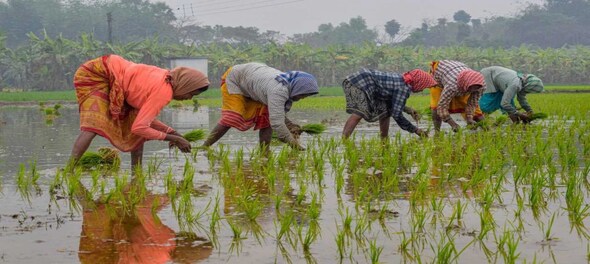
As India prepares for the upcoming Union Budget in February — exactly after two days from today, the country's social development sector seeks policy decisions that address critical issues and accelerates progress towards a more equitable and prosperous society.
With agriculture being a primary source of livelihood in India, it is crucial that the government allocates special funds and farming status to the agricultural community. Besides these, the education needs to be proliferated in the agricultural community and there should be more integration of digital literacy in rural India.
Below are some of the expectations of India's social development sector from the government around the budget:
While the Interim budget is expected to allocate additional money to the Agriculture Accelerator Fund, which will be instrumental in bringing on board new-age ventures and innovations in the field of agriculture, Budget 2024-25 needs to look at giving women more recognition and empowerment in agriculture.
Correspondingly, capacitating individuals with pertinent skills can improve their employability and contribute to economic growth. For instance, women often encounter initial setbacks, while developing the Farmer Producer Organisations (FPOs) as sustainable business enterprises. To address this, we propose extending the government’s support from the current three years to a more realistic five-year period under the 10,000 FPOs scheme. This extended support is vital for the survival of women-led FPOs. The supporting partner, often an NGO functioning as a Cluster Based Business Organisation (CBBO), plays a crucial role in enabling FPOs.
With this extended timeframe, they have the necessary time and bandwidth to actively engage with women in the FPOs. Engagement involves assisting women in adapting to the unfamiliar concepts of creating business plans, establishing market linkages, and other essential aspects. Recognising that these concepts may be alien to women, it is imperative to provide adequate time for them to absorb and incorporate these practices seamlessly into their natural farming processes.
The expectations of the social development sector have been set, keeping in mind the holistic development of the sector, especially inclusive development of the rural women, whose contribution is significant and integral to the development of our country and society.
—The author, Saroj Kumar Mahapatra, is Executive Director of PRADAN (Professional Assistance for Development Action), a voluntary organisation that works across seven of the poorest states in India with rural families to improve their lives, by instigating systems that expand sustainable livelihood opportunities. The views expressed are personal.
(Edited by : C H Unnikrishnan)
Check out our in-depth Market Coverage, Business News & get real-time Stock Market Updates on CNBC-TV18. Also, Watch our channels CNBC-TV18, CNBC Awaaz and CNBC Bajar Live on-the-go!


Delhi, Indore, Surat and Banswara — why these are the most challenging domains for Congress internally
May 4, 2024 1:53 PM
Congress nominee from Puri Lok Sabha seat withdraws, citing no funds from party
May 4, 2024 12:00 PM
Lok Sabha Polls '24 | Rahul Gandhi in Rae Bareli, why not Amethi
May 4, 2024 9:43 AM

